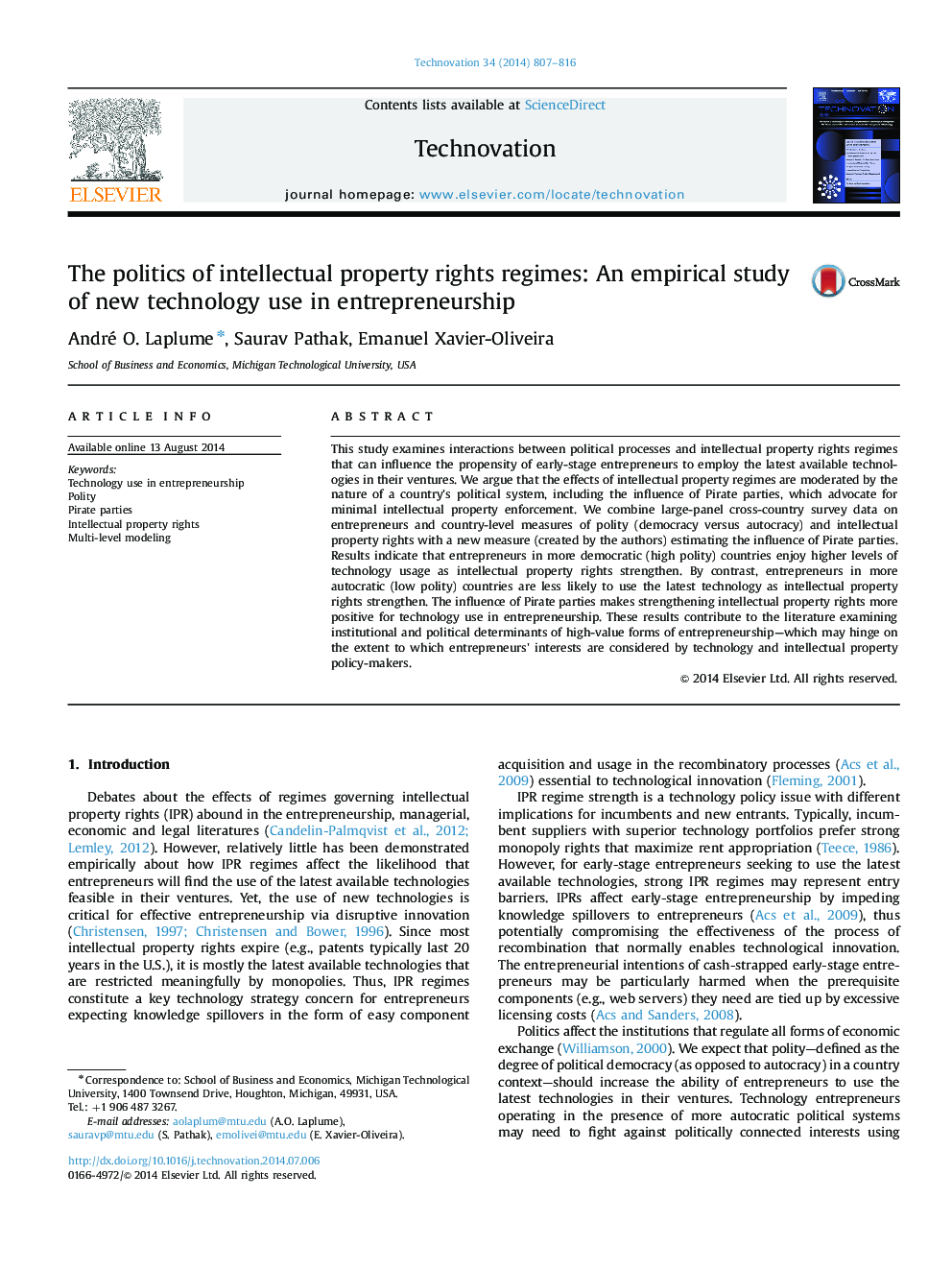| Article ID | Journal | Published Year | Pages | File Type |
|---|---|---|---|---|
| 1021865 | Technovation | 2014 | 10 Pages |
•IPR regimes constitute a key technology strategy concern for entrepreneurs.•Polity refers to the degree of political democracy in a country context.•Entrepreneurs may struggle to participate in shaping the rules of the game.•IPR regimes should be crafted in the interest of early-stage entrepreneurs.
This study examines interactions between political processes and intellectual property rights regimes that can influence the propensity of early-stage entrepreneurs to employ the latest available technologies in their ventures. We argue that the effects of intellectual property regimes are moderated by the nature of a country׳s political system, including the influence of Pirate parties, which advocate for minimal intellectual property enforcement. We combine large-panel cross-country survey data on entrepreneurs and country-level measures of polity (democracy versus autocracy) and intellectual property rights with a new measure (created by the authors) estimating the influence of Pirate parties. Results indicate that entrepreneurs in more democratic (high polity) countries enjoy higher levels of technology usage as intellectual property rights strengthen. By contrast, entrepreneurs in more autocratic (low polity) countries are less likely to use the latest technology as intellectual property rights strengthen. The influence of Pirate parties makes strengthening intellectual property rights more positive for technology use in entrepreneurship. These results contribute to the literature examining institutional and political determinants of high-value forms of entrepreneurship—which may hinge on the extent to which entrepreneurs׳ interests are considered by technology and intellectual property policy-makers.
